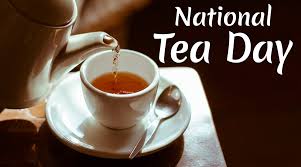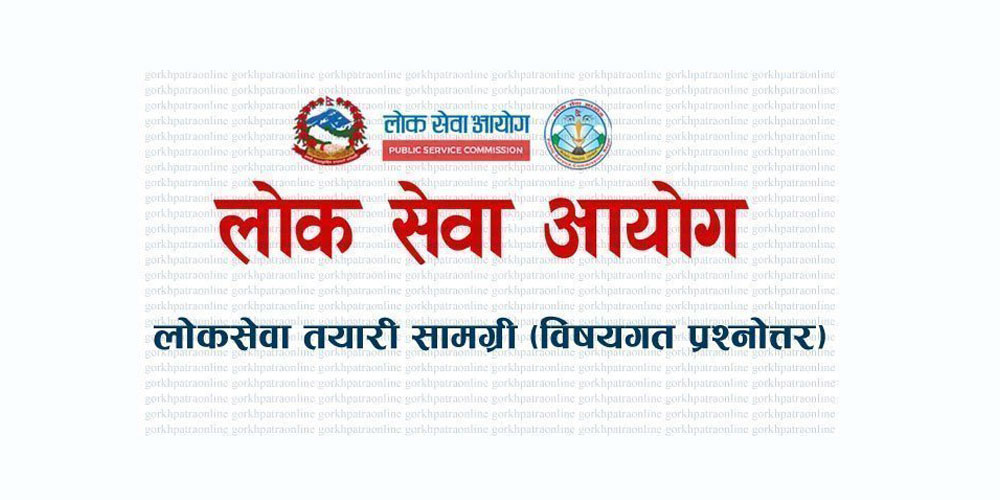Use of Articles (A/An/The)

Introduction
- Articles are words that identify a noun as being specific or unspecific. Consider the following examples: (नामको अघि आउने शब्द Article हो जसले त्यो नाम तोकिएको बमोजिम हो वा सामान्य रुपमा सम्बोधन गरिएको हो भन्ने जनाउछ उदाहरणको लागि 🙂
- After the long day, the cup of tea tasted particularly good.
- By using the article the, we’ve shown that it was one specific day that was long and one specific cup of tea that tasted good. (यहा the article ले त्यो सम्बन्धित दिनमा खाएको त्यो चियालाई सम्बोधन गर्छ)
- After a long day, a cup of tea tastes particularly good.
- By using the article a, we’ve created a general statement, implying that any cup of tea would taste good after any long day. (यहा ‘a’ article ले कुनै दिनमा (a day) मा कुनै एक कप चियालाई (general) सम्बोधन गर्छ)
The definite article:
The definite article is the word the. It limits the meaning of a noun to one particular thing. For example, your friend might ask, “Are you going to the party this weekend?” The definite article tells you that your friend is referring to a specific party that both of you already know about. The definite article can be used with singular, plural, or uncountable nouns. Below are some examples of the definite article, the, used in context:
- Please give me the hammer. (त्यो/त्यही hammer देउ)
- Please give me the red hammer; the blue one is too small.
- Please give me the nails. (त्यो काँटी देउ)
- Please give me the large nail; it’s the only one strong enough to hold this painting
- Please give me the hammer and the nails.
The indefinite article:
The indefinite article takes two forms. It’s the word a when it precedes a word that begins with a consonant sound. It’s the word an when it precedes a word that begins with a vowel sound. The indefinite article indicates that a noun refers to a general idea or category of a thing rather than a specific thing.
For example, you might ask your friend, “Should I bring a gift to the party?” Your friend will understand that you are not asking about a specific type of gift or a specific item. “I am going to bring an apple pie,” your friend tells you. Again, the indefinite article indicates that she is not talking about a particular apple pie. Your friend probably doesn’t even have any pie yet. The indefinite article appears only with singular nouns. Consider the following examples of indefinite articles used in context:
- Please hand me a book; any book will do. (कुनै एउटा किताब)
- Please hand me an autobiography; any autobiography will do. (कुनै एउटा आत्मकथा देउ)
More examples: Using a or an
As mentioned, the rule is to use a before words that start with a consonant sound and an before words that begin with a vowel sound. This can be tricky because some words that start with consonants don’t start with a consonant sound; the same is true of some words that start with vowels. The first letter of the word honor, for example, is a consonant, but it’s unpronounced. Despite its spelling, the word honor begins with a vowel sound. Therefore, we use an. Consider the example sentence below for an illustration of this concept.
Note:
- a,e,i,o,u vowels बाट शब्द सुरु भएका छन् भन्दैमा ‘an’ लाग्छ भन्ने हैन |
an honest person. ‘honest’ को ‘h’ consonant हो तेही पनि यसमा ‘an’ लाग्छ किनभने honest ko उच्चारण ‘अनेष्ट’ हो जुन ‘a’ vowel बाट सुरु हुन्छ ।त्यसैले शब्द के बाट सुरु भएको छ भन्दा पनि शब्दको उच्चारण के बाट सुरु भएको छ मा ध्यान पुर्याउनु पर्छ | सहजताका लागि
कुनै शब्दको उच्चारण नेपाली वर्णविन्यासको अ/आ/इ/ई …./अ: बाट सुरु भएमा त्यसको अघि ‘an’ राख्नुहोस क/ख/ग/…./ज्ञ बाट सुरु भएमा ‘a’ राख्नुहोस् .
Incorrect: My mother is a honest woman.
Correct: My mother is an honest woman. (अ उच्चारण)
Similarly, when the first letter of a word is a vowel but is pronounced with a consonant sound, use a, as in the sample sentence below:
Incorrect: She is an United States senator.
Correct: She is a United States senator. (यू उच्चारण)
This holds true for acronyms and initialisms too: an LCD display, a UK-based company, an HR department, a URL.
An article before an adjective
Sometimes an article modifies a noun that is also modified by an adjective. The usual word order is article + adjective + noun. If the article is indefinite, use a or an based on the word that immediately follows it. Consider the following examples for reference:
- Eliza will bring a small gift to Sophie’s party.
- I heard an interesting story yesterday.
Indefinite articles with uncountable nouns:
Uncountable nouns are nouns that are impossible to count, whether because they name intangible concepts (e.g., information, animal husbandry, wealth), collections of things that are considered as wholes (e.g., jewelry, equipment, the working class), or homogeneous physical substances(e.g., milk, sand, air). Although most of these nouns are singular in form, because they refer to things that can’t be isolated and counted, they never take a or an.
Here are examples where indefinite articles are used with uncountable nouns appropriately:
- I’d like a cup of coffee, please.
- She needs a piece of advice about her career.
- Can I have a slice of cake for dessert?
- He has a bit of knowledge about computer programming.
- I’d like a glass of water with my meal.
Uncountable nouns can be modified by indefinite adjectives like some, however. Consider the examples below for reference
(अगणनीय नाममा केहि article लाग्दैन):
Incorrect: Please give me a water.
Water is an uncountable noun and should not be used with the indefinite article.
Correct: Please give me some water.
If you describe the water in terms of a countable unit (like a bottle), you can use the indefinite article to modify the unit. (गणनीय नाममा भने article लाग्छ)
Incorrect: Please give me an ice.
Correct: Please give me an ice cube.
Correct: Please give me some ice.
Note that depending on the context, some nouns can be countable or uncountable (e.g., hair, noise, time):
Correct: We need a light in this room.
Correct: We need some light in this room.
Incorrect: Would you like a rice with your meal?
Correct: Would you like some rice with your meal?
Incorrect: Can you pass me a information about the project?
Correct: Can you provide me with some information about the project?
Using articles with pronouns:
Articles (a/an, the) are typically not used directly with pronouns in English. Pronouns are already specific or general by their nature, and using articles with them is not necessary. However, there are some contexts where articles indirectly influence the use of pronouns. Here are examples to illustrate these points:
Using “The” with Demonstrative Pronouns:
- This is the book I was talking about.
- Those are the friends I mentioned.
In these examples, “this” and “those” are demonstrative pronouns, and they are used with a reference to specific objects.
Using “The” with Specific Nouns Modified by Pronouns:
- The girl who is sitting in the corner is my sister.
- The man whose car is parked outside is the boss.
In these examples, “who” and “whose” are relative pronouns that modify specific nouns.
Using “The” to Specify a Unique Pronoun Reference:
- The one thing I want is peace.
- The person you should ask is him.
In these examples, “the” is used to specify a particular, unique pronoun reference.
Using “A” with Indefinite Pronouns:
- I saw a few people waiting in the lobby.
- She needs a little time to decide.
In these examples, “a” is used with indefinite pronouns like “few” and “little” to refer to a non-specific quantity.
Possessive pronouns—words like his, my, our, its, her, and their—can help identify whether you’re talking about specific or nonspecific items. As we’ve seen, articles also indicate specificity. But if you use both a possessive pronoun and an article together, readers will become confused. Articles should not be used with pronouns. Consider the examples below:
Incorrect: Why are you reading the my book?
The and my should not be used together, as they are both identifying the same noun. Instead, choose one or the other depending on the intended meaning:
Correct: Why are you reading the book?
Correct: Why are you reading my book?
( सर्वनाम संग article प्रयोग गर्दा कि त article use गर्नु कि त सर्वनामनै )
Omission of articles:
Occasionally, articles are omitted altogether before certain nouns. In these cases, the article is implied but not actually present. This implied article is sometimes called a “zero article.” Often, the article is omitted before a noun that refers to an abstract idea. Look at the following examples:
Incorrect: Let’s go out for a dinner tonight.
Correct: Let’s go out for dinner tonight.
Incorrect: The creativity is a valuable quality in children.
Correct: Creativity is a valuable quality in children.
Incorrect: Man Lands on a Moon for the First Time.
Correct: Man Lands on Moon for the First Time.
Tip: The words for many languages and nationalities are not preceded by an article.
Incorrect: I studied the French in high school for four years.
Correct: I studied French in high school for four years.
Tip: Sports and academic subjects do not require articles.
Incorrect: I like to play the baseball.
Correct: I like to play baseball.
Incorrect: My sister was always good at the math.
Correct: My sister was always good at math.
Let us look at a few more examples to find out how articles can be used.
- The English teacher is absent today.
- I saw a bird sitting on the tree in front of my house.
- Not many know how to use an oven properly.
- Tom has a cat.
- We are going to buy a dress for our daughter.
- Carry an umbrella. I am sure it will rain.
- Keren found a puppy on the road.
- The parents have been asked to attend a meeting tomorrow.
- The committee has decided to bring down the fuel rates.
- Due to a hartal, the shops have been closed.
Check Your Understanding of Articles
Fill in the blanks with the appropriate articles in the following sentences:
1. Have you watched ______ new movie?
2. I have never used ______ computer.
3. Do you know _____ multiplication tables?
4. Sandra brought ______ apple.
5. Madhu has ____ teddy bear.
6. ______ chairs are all broken.
7. The janitor asked ______ students to walk carefully as ______ floor was wet.
8. I have finished reading _____ book you lent me.
9. Hari is planning to buy ____ new car.
10. He has been waiting for ___ hour.
Check your answers.
1. Have you watched the new movie?
2. I have never used a computer.
3. Do you know the multiplication tables?
4. Sandra brought an apple.
5. Madhu has a teddy bear.
6. The chairs are all broken.
7. The janitor asked the students to walk carefully as the floor was wet.
8. I have finished reading the book you lent me.
9. Hari is planning to buy a new car.
10. He has been waiting for an hour.
To Sum Up:
What is an article?
An article is a word that comes before a noun to show whether it’s specific or general. Specific nouns use the article the and general nouns use the article a (or an, if the next word starts with a vowel sound).
What are definite and indefinite articles?
The definite article refers to something specific, and the indefinite article refers to something general. The is the definite article and a/an is the indefinite article.
What is an example of an article in grammar?
“The hammer” refers to only one hammer, but “a hammer” refers to any hammer.
When should we not use articles?
We don’t use the indefinite article with uncountable nouns, or any article with a possessive pronoun. Certain nouns such as nationalities, school subjects, and sports often don’t take articles, especially when they refer to general or abstract ideas.




